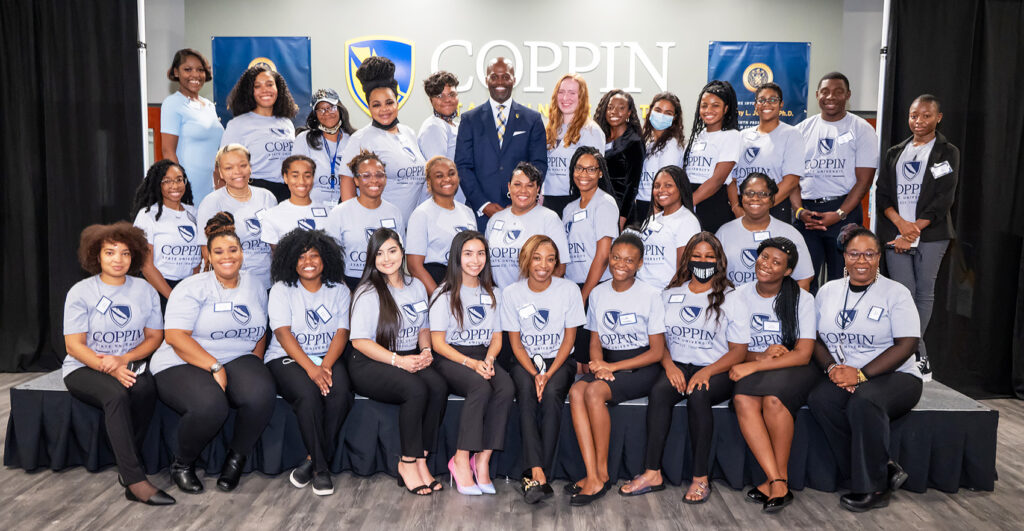I remember the knot in my stomach. It was a familiar feeling, one that tightened every time I thought about college tuition. My dream school felt a million miles away, not because I wasn’t smart enough, but because my family’s finances were, well, complicated. Federal aid would help, sure, but it wouldn’t cover everything. The thought of starting my adult life buried under a mountain of debt was terrifying. My dream was slipping, slowly, surely, through my fingers.
Then, a casual conversation with an older cousin changed everything. "Have you looked into private donor scholarships?" she asked, almost as an afterthought. I hadn’t. I barely knew what they were. My entire focus had been on the big federal and state programs. What she told me next opened up a whole new world – a world where individuals, foundations, and local organizations were actually looking for students like me to support.
This is my story, a story of persistence, a bit of luck, and the incredible generosity that allowed me to pursue my education without the crushing weight of financial worry. If you’re feeling that same knot in your stomach, read on. Because if I can find them, you can too.
What Exactly Are Private Donor Scholarships? (And Why They’re a Game-Changer)
Before I dive into my hunt, let’s clear up what we’re talking about. Forget the massive federal grants for a moment. Private donor scholarships are funds provided by:
- Individuals: Often alumni, philanthropists, or families honoring a loved one.
- Private Foundations: Organizations set up specifically to give money away for charitable purposes.
- Companies/Corporations: Many businesses have scholarship programs as part of their community outreach.
- Local Community Groups: Think Rotary Clubs, Lions Clubs, women’s groups, ethnic associations, or even your local church.
- Professional Organizations: Groups related to specific careers (e.g., engineering societies, nursing associations).
Why are these so important?
- They fill the gaps: Federal aid often isn’t enough. Private scholarships can cover the rest, reducing or even eliminating the need for loans.
- They’re not just for academic superstars: While some are merit-based, many focus on specific interests, community service, heritage, location, or even unique hobbies. My cousin told me about one for left-handed students!
- They’re often less competitive: Unlike national programs with thousands of applicants, local or niche scholarships might only have a handful.
- You don’t pay them back: This is the golden rule of scholarships. It’s free money for your education.
For me, understanding this distinction was like realizing there was a whole other ocean of funding I hadn’t even dipped my toes into.
My Scholarship Hunt: Where to Look When You Don’t Know Where to Start
It felt like a treasure hunt, and honestly, sometimes it felt like I was just digging in random spots. But slowly, a method emerged. Here’s where I focused my energy:
-
Online Scholarship Databases (The Big Guns, But Dig Deep):
- I started with websites like Fastweb, Scholarship.com, Chegg, and College Board’s Scholarship Search. These are great for casting a wide net.
- My Tip: Don’t just fill out your profile and hope for the best. Use very specific keywords. Don’t just search "college scholarship." Try "scholarship for [your major] in [your state]" or "scholarship for [your hobby/sport/community service interest]." The more specific, the better your matches. I found one for students interested in environmental conservation because I used "environmental studies" and "volunteer."
-
My High School Counselor (Seriously, Don’t Skip This!):
- My counselor was a goldmine of local information. She had a bulletin board (yes, a real one!) filled with flyers for scholarships from local businesses, community foundations, and alumni groups.
- My Tip: Schedule a dedicated meeting. Ask them directly, "What local scholarships are available? Are there any that often go overlooked?" They know the hidden gems.
-
My College’s Financial Aid Office (Even Before You’re Accepted):
- Many colleges have their own private donor scholarships, sometimes for specific departments, student demographics, or even based on a student’s hometown.
- My Tip: Check their website’s financial aid section. Look for a "scholarships" link. Often, there’s a separate application process for these institutional private scholarships.
-
Local Community Organizations (The Real Hidden Gems):
- This was where I hit the jackpot. I researched local Rotary Clubs, Lions Clubs, women’s clubs, and even my town’s historical society. Many of these groups have small, but incredibly impactful, scholarship programs.
- My Tip: Don’t be afraid to call or email them. "Hi, I’m a local student, and I heard you might offer scholarships. Could you tell me more?" Be polite, be prepared to introduce yourself, and show genuine interest. I found one from a local business owner who just wanted to support a student from his hometown.
-
Professional Associations & Employers (Think Outside the Box):
- Are your parents or guardians part of a union or a professional association? Do they work for a large company? Many of these organizations offer scholarships for employees’ children or for students pursuing specific fields.
- My Tip: Ask your family members to check with their HR departments or union representatives.
Crafting Your Story: The Application Process
Once I started finding potential scholarships, the next step was to apply. This wasn’t just about filling out forms; it was about telling my story.
-
Read the Instructions (Every Single Word):
- Seriously. Some scholarships have very specific essay prompts, word counts, or require particular recommendations. Missing one detail can disqualify you immediately. I almost missed one because I didn’t see the "submit a headshot" requirement.
-
The Essay: This is Your Voice:
- This was my biggest hurdle. I’m not a natural writer. But I learned that scholarship essays aren’t about being Shakespeare; they’re about being you.
- My Tip: Answer the prompt directly, but inject your personality. What makes you unique? What challenges have you overcome? What are your dreams? How will this scholarship help you achieve them? Don’t just list achievements; tell the story behind them. For the environmental scholarship, I wrote about my passion for hiking and how it sparked my desire to protect nature.
-
Letters of Recommendation (Choose Wisely):
- Don’t just ask the teacher who gives easy A’s. Ask someone who knows you well and can speak to your character, work ethic, and potential. A teacher, a coach, a mentor, a supervisor from a part-time job – someone who can write a specific and glowing letter.
- My Tip: Ask well in advance. Provide them with your resume, the scholarship requirements, and a brief reminder of your achievements in their class or under their supervision. Make it easy for them to write a great letter.
-
Proofread, Proofread, Proofread:
- A typo can make you look careless. After I finished an application, I’d read it aloud, then use a spell checker, and then ask a trusted friend or family member to read it over. Fresh eyes catch mistakes.
My Hard-Earned Wisdom: Tips for Success
Looking back, here are the lessons I wish I knew from the start:
- Start Early: Scholarship deadlines creep up fast. Begin your search a year before you plan to attend college, if possible.
- Be Persistent, Not Discouraged: You will get rejections. I did. Many of them. It’s part of the process. Don’t let it stop you. Every "no" brings you closer to a "yes."
- Cast a Wide Net: Apply for as many scholarships as you reasonably can. Even small ones add up! A $500 scholarship here, a $1,000 scholarship there – it all makes a difference.
- Tailor Each Application: Resist the urge to copy-paste essays. Each scholarship is unique, and your application should reflect that you’ve put thought into their specific requirements.
- Keep a Spreadsheet: Track every scholarship you apply for: the name, deadline, requirements, date submitted, and outcome. This keeps you organized.
- Be Authentic: Don’t try to be someone you’re not. Scholarship committees want to fund real people with real dreams.
Common Myths I Encountered (and Debunked for Myself)
When I first started, I had a lot of preconceived notions that almost held me back:
- Myth 1: Scholarships are only for straight-A students.
- Reality: While academic merit helps, many scholarships prioritize community service, leadership, specific talents, financial need, or unique life experiences. My grades were good, but it was my volunteering that often stood out.
- Myth 2: It’s too much work for too little reward.
- Reality: Yes, it takes time and effort. But imagine working a minimum wage job for 200 hours to earn $3,000. Writing a few essays and filling out forms for those same $3,000 (or more!) is a far better return on your investment of time.
- Myth 3: I won’t qualify for anything important.
- Reality: You’d be surprised by the diversity of scholarships out there. There are scholarships for virtually every background, interest, and aspiration. You just have to find them.
The Moment I Got the News
I remember the email. It wasn’t from a big federal agency; it was from a small local foundation. The subject line was "Scholarship Award Notification." My heart pounded as I clicked it open. I scanned the first few lines, my eyes darting to the amount. It wasn’t a full ride, but it was substantial – enough to cover my textbooks, living expenses for a semester, and significantly reduce my loan burden.
Tears welled up. It wasn’t just the money; it was the validation. Someone believed in my potential enough to invest in my future. That belief, combined with the other smaller scholarships I eventually received, transformed my college experience from a financial burden into an exciting journey of learning and growth.
Your Dream is Worth the Effort
Finding private donor scholarships wasn’t a magic bullet, and it certainly wasn’t easy. There were frustrating days, moments of self-doubt, and plenty of rejections. But it was absolutely worth it. It gave me the freedom to focus on my studies, to participate in extracurriculars, and to truly enjoy my college years without constant financial stress.
If you’re reading this, feeling that same knot in your stomach I once did, please know this: Don’t give up. Your dream is valid, and there are people out there who want to help you achieve it. Start your search today. Be diligent, be authentic, and be persistent. You might just find that hidden treasure that changes everything for you too. Good luck!



